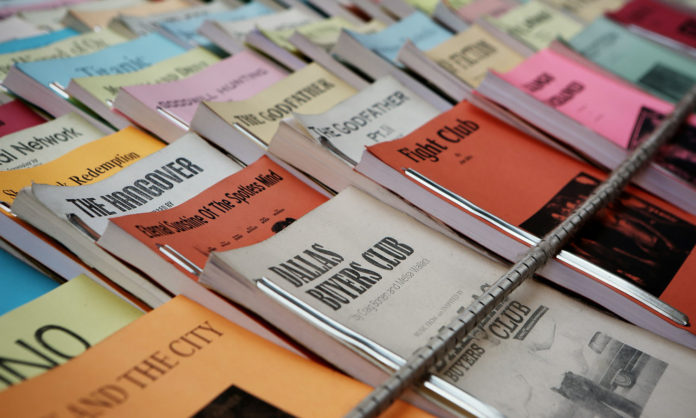
In a post on the ScreenCraft blog, Martin Keady suggests five 21st century plays writers should read to hone their craft. “The ability to write dialogue and story for characters on a stage is one that all writers and specifically all screenwriters should attempt to master,” he says.
- Jerusalem (2009) by Jez Butterworth. Jerusalem “is a frequently hilarious and often deliberately provocative examination of what it means to be a rebel in our modern, corporate-dominated age,” Keady says.
- Le Père (The Father) (2012) by Florian Zeller. A play about a woman struggling to care for her father with dementia, Le Père was recently made into an award-winning film starring Anthony Hopkins, who won the Best Actor award at the Oscars for his performance. “The play does not so much depict dementia as embody it, because of its endlessly dynamic and uncertain structure,” Keady says. “As a middle-aged woman struggles to cope with the increasingly rapid and profound mental disintegration of her father, the play itself almost seems to fall apart, just like its protagonists.”
- This House (2012) by James Graham. This House is “Graham’s 2012 play about the fractured British Parliament of the second half of the 1970s, in which the absence of a majority-ruling party necessitated apparently endless official and unofficial coalitions (and all the associated backroom power-broking) between politicians of different parties,” Keady writes. “This House is one of the best plays to read if you want to write a political drama that tackles difficult power dynamics.”
- Chimerica (2013) by Lucy Kirkwood. In Chimerica, a news photographer and a Chinese dissident attempt to identify “Tank Man”, the lone man who defied Chinese tanks sent to quell the protests in Tiananmen Square in 1989. “The play demonstrates that just as important as the shifting nature of geopolitics is the shifting nature of individual identity, as the pursuit of ‘Tank Man’ becomes ever more difficult, if not impossible,” Keady explains.
- Bad Jews (2013) by Joshua Harmon. When two Jewish cousins fight over a family heirloom, they argue over which is more deserving; in other words, which is a Good Jew and which is not. Written against the backdrop of a family history decimated by the Holocaust, the play is packed with “magnificently petty squabbling and name-calling,” Heady writes. “That includes one of the most memorable rejoinders of 21st-century theatre when one cousin reprimands the other for trying to outdo him when it comes to guilt-tripping by proclaiming: ‘Don’t Holocaust me!'”











